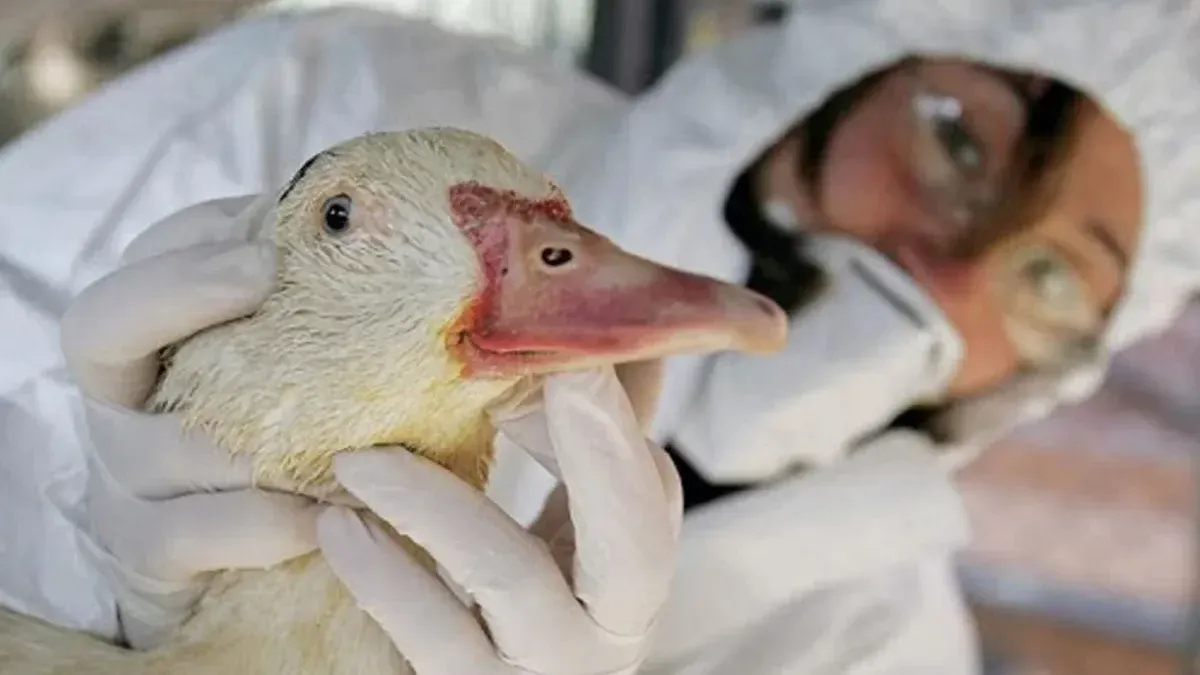91% of the foci of bird flu Registered in Argentina are closed and “if the epidemiological situation continues, in a radius of 40 days all the others will already be in that same condition,” said Rodolfo Acerbi, vice president of the National Agrifood Health and Quality Service (Senasa). .
In dialogue with Télam, The official also stressed that the health agency is advancing with talks for the reopening of markets, such as those of China, Saudi Arabia and Singapore, among others.
Of all the samples analyzed last week – from June 10 to 16 – by the Senasa National Laboratory, only one positive case of avian influenza was registered. This amount is a constant in recent times, which determines that only six cases were detected in the last four weeks.
The agency explained that of the 546 notifications analyzed to date and of the samplings carried out in the sanitary control areas, there are a total of 100 detections (18.3%) of the disease throughout the country and 91 closed outbreaks (91% ) since the start of the health emergency 126 days ago. “At this moment we are in a situation of clear decline, not of sampling or suspicion, but of positive cases,” Acerbi remarked.
“If the epidemiological situation continues, in a radius of about 40 days we would be with all the outbreaks closed, as long as no new one appears; but for now surveillance continues to intensify“said the official.
avian influenza.jpg
However, Acerbi stressed: “This does not allow us to say that the disease was eradicated or that it became endemic (that the causative agent of the disease arrived in the country and stays, and that when it wants to reappear).”
Avian influenza “is a disease that challenges us every day, we are looking at the external and internal,” Acerbi pointed out, and emphasized: “Not having cases does not relax us, quite the contrary, it keeps us attentive because any advantage we give This virus is going to return us to the beginning of the problem and we want to move forward, not go backwards”.
This disease brought an inconvenience to the country regarding the export of poultry products, since sales to other countries had to be interrupted and a little more than two months ago they were reopened, amid hard work by Senasa and its peers in the abroad, with whom it was necessary to negotiate -one by one- the health rules and the particularities of each country.
What are the markets that are in negotiations
In this regard, Acerbi assured that “the reopening of markets is good” and that there are “very advanced” negotiations with Saudi Arabia, “a very important market”, on which -he remarked- “Ambassador Guillermo Nielsen is doing a very good job “.
Similarly, Senasa is negotiating with South Africa, although this is “a little slower,” according to the organization’s vice president, who also mentioned meetings with Chile, “a market that we also had and today they are at a critical moment.” and with the European Union.
But for Argentina, one of the main objectives is the Chinese market, which was reflected in the recent trade mission led by the Minister of Economy, Sergio Massa, together with various members of his team, including the Secretary of Agriculture, Juan Jose Bahillo.
In fact, Bahillo himself -from China- stated through a Twitter post that “advancing in the modification of the protocol to allow the regionalization of poultry exports from Argentina” was achieved, a consensus that allows the country to “advance in the normalization of external sales of the sector, through a destination that represents 55% of our poultry exports”.
The head of Agriculture also highlighted that Argentina obtained “confirmation from the Chinese authorities to advance in the protocols that allow Argentina to send porcine and bovine offal, as well as to establish a sanitary agreement for the opening of corn, dried fruits and sorghum”.
Regarding this, sources from Senasa confirmed to Télam on Friday that “In the coming weeks, a technical meeting will be held between the agency and its Chinese counterpart (General Administration of Quality Supervision, Inspection and Quarantine [Aqsiq]) to advance the new protocol for avian exports”.
In this regard, Acerbi explained that “all negotiations always have a political framework component and a technical framework component, and the visit of the Minister of Economy to China with the Secretary of Agriculture considered the political framework fulfilled and from that political framework must be detached a technical framework.
Both the Chinese, Arab and European markets will be important for Argentina due to “the need for foreign currency to enter the country due to today’s macroeconomic situation; it is vital and strategic,” Acerbi said.
Source: Ambito




